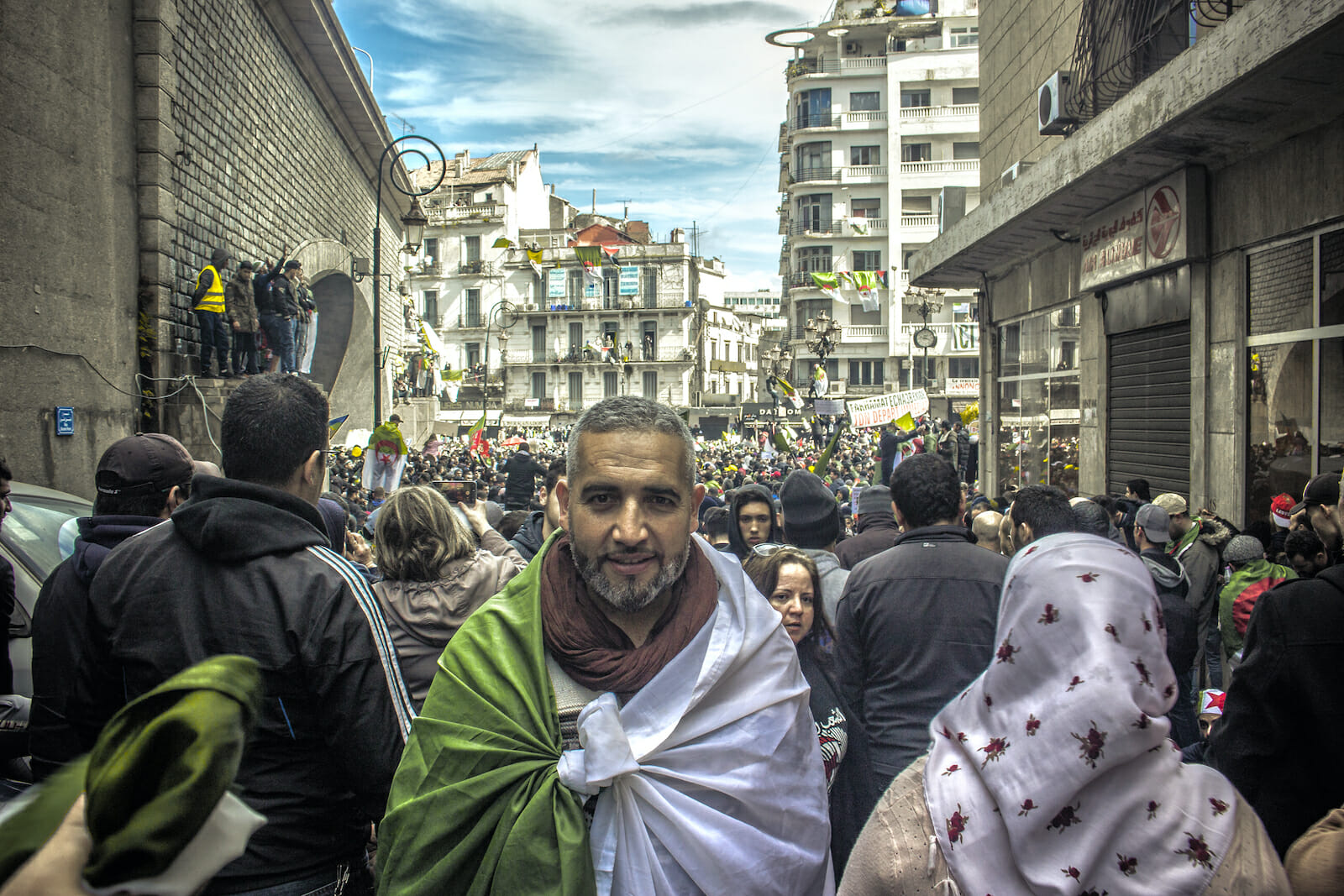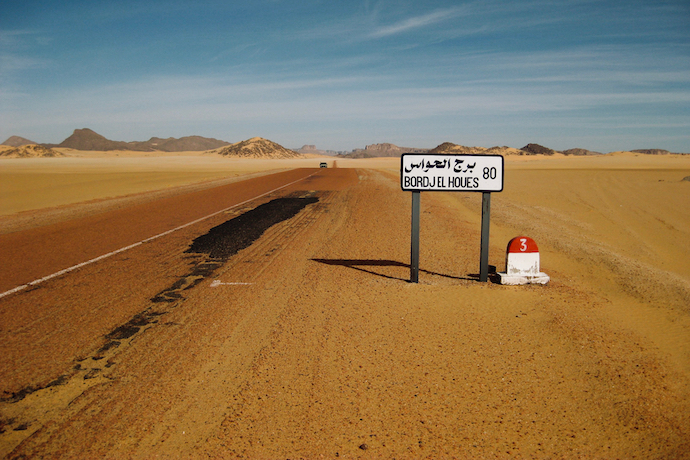
Why France Cannot Bypass its Loss of Algeria. Decolonization as a Quagmire 60 Years Later
Albert Camus, a Nobel Laureate for Literature, was born and raised in colonial Algeria. He is largely considered in independent Algeria as the spokesperson of white settlers, perhaps even the pride of a social class better known as les pieds noirs, descendants of white settlers or colonists who settled after the conquest of Algeria in 1830. They acquired the fertile land at a fraction of the cost following the decimation of Arab tribes and the ruinous policies that led to the dispossession of the remaining inhabitants from their communal lands. The early colonists are branded as pioneers. They worked the land and rendered it extremely productive.
During the 1930s, the colonists entertained that if America is proud of California, then France is proud of Orléansville, now Chlef Province. True, these colonists were industrious but notoriously known for exploiting dispossessed Algerians. Russian convicts, who lived through the reign of the last Tsar and were serving prison terms in Bône, were shocked to find that the colonists treated Algerians worse than sheep. With the end of military rule in the 1880s, colonists were responsible—through exclusionary practices—for literally sending Algerians behind the sun. Understandably, by the time the Algerian Revolution broke out in November 1954, everything the colonists fought and stood for was at stake. Most of them at that point could trace their lineage back at least 100 years or more.
To give non-Algerian and non-French readers a foretaste of la déchirure or these colonists’ misfortunes brought about by Algeria’s independence in 1962, consider this analogy. In South Africa, Nelson Mandella was awarded the Nobel Peace Prize simply because he did not repeat the Algerian quagmire. Mandella did not start a policy or propagate a process leading to their eventual eviction or dispossession. White liberals and their media adore Mandella for not doing what the FLN (Front de libération nationale) is thought to have done with white colonists.

Here enters Camus’ conciliatory rhetoric during Algeria’s war of independence. Camus is notorious for adopting his mother’s point of view at the expense of justice. Because I hailed from the very people sent behind the sun by Camus’ ancestors, I find any engagement with that ‘justice-versus-mother’ discussion’ a dead horse. How so? The terrorism Camus refers to in the quote was not terrorism; these were some people’s deliberate actions of emancipation, to re-enter history. Hence, the euphoric festivities reported in popular songs such as “يا محمد مبروك عليك الجزائر رجعت ليك” Camus’ lyricism does not even begin to approach historical necessities. Reading Camus may make one more sensitive to certain complexities, but at the end of the day, poetic formulations of his and his like (Mouloud Feraoun for one) do not advance the cause of emancipation one bit.
Advancing this position, I am aware, comes at the risk of effecting a major offense to liberal sensibilities since Camus has been the darling of this class. But Camus did not hail from these classes; he had been accultured, not without his tacit approval though. With class as a matrix for meaningful analysis, the methodological line is drawn for what comes below.
Similarly, it is worth recalling that with the conclusion of the Evian Agreements, colonists became personas non grata, undesired in a country they called home. A large part of them knew no other country to call home except Algeria. Algerians today perfectly understand and even sympathize with their misfortune. Strangely, the Evian Agreements guaranteed the colonists’ right to stay. But it is they who sealed their fate in calling for and acting to keep Algeria French.
Had they stayed, I and my kind (practically sons of impoverished peasants) would never have had the chance to make it beyond primary school. We would have been condemned to subservient positions. It is no exaggeration that by literally enslaving Algerians, not a small number of colonists lived like royalty. Hence the context for nostalgia and the rumination over a French Algeria in contemporary France. Knowing that originally these colonists hailed from peasant and working-class backgrounds, it is understandable what they have gained and lost. Camus is an icon for everything they aspire to, the entrepreneurial self-made model.
Now, concerning how independent Algeria has fared without colonists, that is less significant to colonists and more appealing to capitalists. Volumes can be written about dysfunctionalities together with imagined or real corruption. But for the sake of fairness, every Algerian is entitled to free education, health insurance, dignified lodgings, and so on. Still, the class struggle remains the perfect arbitration for any measure of success or failure.

The predominant nationalist discourse prevailing after independence only seeks to asphyxiate the class war. Through several slogans, Le hirak (peaceful uprising) of February 2019 articulated that class dimension. But the triumphant narrative tried and succeeded in portraying it as only an exasperation with Bouteflika and his cronies. Indeed, le hirak expresses an incendiary insurrection against the entire setup of the postcolonial order.
This leaves subaltern Algerians with no hatred against France or at least they do not hate France outside space and time. Algerians cannot resist French brands. For most Algerians practically leading their daily lives, one cannot sit around crying over spilled milk. Still, for the sake of historical accuracy: the colonists kept Algerians outside time. This is not a nationalist ruminating over colonial atrocities to cover for postcolonial shortcomings!
Who stood against the progressive policies of Metropolitan France, who ever since the end of military rule in the 1880s sought the welfare of Algerians? None but the colonists. In 1962, these colonists got what they historically as a class deserved. Outlining this does not make Algerians blind to the fact that several colonists openly supported decolonization. The violence during the revolution settled scores; that violence as Frantz Fanon (1925-1961) brilliantly puts it in The Wretched of the Earth had purifying effects in the sense that it allows for the human being in the colonized to emerge. Recall that with Fanon as well as with the Franco-Tunisian scholar Albert Memmi (1920-2020), the colonized is a strange combination of deformities. The colonized had to kill the colonized within him or her to join the realm of the human. Violence, of the sort that took place during the Algerian revolutionary war (1954-1962) has been, for Fanon, an unfortunate but necessary maneuver to allow the man in the colonized to be born.
Regarding present Franco-Algerian relations, they too cannot be stripped out of context. Not all the criticisms one reads in the French media are accurate or innocent. A few observers are even ready to admit that there exists corruption in reporting corruption in Algeria. The first people who brought the public attention to overpricing the 1,200 km highway in 2006 were the French media. Why? French companies, like American, Japanese, and South Korean made their bids. But the project was contracted by three large and state-owned Chinese construction giants. How so? Simply, because Algerian bureaucrats handed the project to the lowest bidder.
Like everywhere in the world, the initial fund meant to cover the construction was not enough and the contracted companies asked for what is theirs legally. The highway is not Germany’s Autobahn but its cost is reasonable. And the delivered infrastructure is not bad as it is often reported. Likewise, the French media become furious when the authorities handed the contract for building the largest damn in the Maghreb, that of Beni Haroun in 2001, to the Chinese. The contract was mouthwatering and soon the usual media faultfinding started. Bouteflika’s tenure has been no short of objections, but it remains a duty to be fair.

Big contracts for building key infrastructure such as the one outlined above are a few examples of why tensions have always governed the relationship between independent Algeria and France. The cultural explanation as proposed by the Algerian establishment often aims to justify, and rarely to explain. The tension has deep roots in material history and the meaning of primitive accumulation. It is the tendential fall in the rate of profits [as specified by Karl Marx in volume three of Capital] that oblige French companies to compete against more vibrant American companies for shares in Algerian markets that dictate the tension. The corruption in corruption-bearing discussions seeks to cover that public officials’ mishandling of assets cannot significantly account for the contradictions that underline globalization. The latter precipitates no contracting preference for one national capital—a situation that remains full of odds and generates tensions among competing capitalisms marking globalization. To illustrate, Algeria’s decision to nationalize its energy sector in February 1971, gave leverage to American companies at the expense of French ones.
That explains that if one aims to address the subterranean forces that shape Franco-Algerian relations, then one must read and consider the underlying thesis proposed by Gregory D. Cleva in JFK Algeria Speech (2022). It is not as if we only want to read the book, but we have to. The gist of Cleva’s volume specifies that in the wake of that speech, a pattern was set for the relationship not only between the U.S. and Algeria or the U.S. and France but between Algerian and French establishments. Leaving the ephemeral (that which French media deems newsworthy) and embracing the essential, the JFK Algeria Speech is the way to go. The intricate web of connections is barely highlighted, let alone, sufficiently addressed neither by staunch Algerian nationalists nor by largely nostalgic French journalists and academics.
For a large sway of ordinary Algerians, the FLN eventually won because it forced Charles de Gaulle to accept negotiations. Under the carpet, however, lies the fact that by the time JFK made his speech, the Algerian revolution has been militarily defeated. Remember, it was in the context soon after the battle of Algiers in 1957 and when the revolutionary masterminds were decimated. French generals’ strategy to defeat the insurrection started bearing fruits. And still, the revolution, in the final analysis, got what it wanted! Strange, isn’t it? Some other forces were working against French policymakers of the time and in favor of the FLN, not necessarily in favor of the Algerian people or the revolutionaries. We read in Cleva’s account that American general consuls in Algiers serving from 1942 to the late 1950s, played key roles by reporting the pitfalls of French colonial policies. As a member of the Senate’s committee for foreign policy and thus a likely candidate for the presidency, JFK formalizes what the American establishment, up to that point, has always wanted.
The U.S. did not emerge from WWII victorious just like that. The world still remembers how former President Donald Trump in November 2018 reacted to French President Emmanuel Macron’s allusion to the need to create an independent European army, a framework outside NATO. Trump angrily responded: “Without the U.S. help in two world wars, today’s Parisians would be speaking German.” The point here is that while the French generals overwhelmingly succeeded in suppressing the insurrection in Algeria, French politicians could not capitalize on that success because Washington wanted otherwise. The latter embarked on a policy of decolonization and not even Britain was immune. India, the jewel of the empire, won its independence!
With his return to power in 1958, de Gaulle tried his best to secure Algeria as French but eventually, he knew his maneuvers would amount to a little showmanship. U.S. geostrategic interests wanted an end to colonization, lest upheavals and insurrections in the colonies would break the fragile new order. Decolonization as a policy was meant to contain the colonized, regardless of how on the surface, it gave them better terms (not the best) to negotiate their future emancipations. For Indians as much as for Algerians or Kenyans, movements for independence have been largely decided elsewhere, although, it is disrespectful to presume that battlefields did not matter.
Understandably, this leaves us with an accurate picture of how the French establishment views Algeria today. Perhaps less so when it comes to how Britain views India, France sees Algeria as a fickle partner that simply decided to exchange partners and get in bed with Washington. All other approximations to those relations are meant to justify, never to explain what the French establishment to this day cannot overcome what it considers as the impossible loss! But it is precisely here where Algerians prefer to overlook the American role and attribute victory exclusively to their forefathers’ sacrifices.

